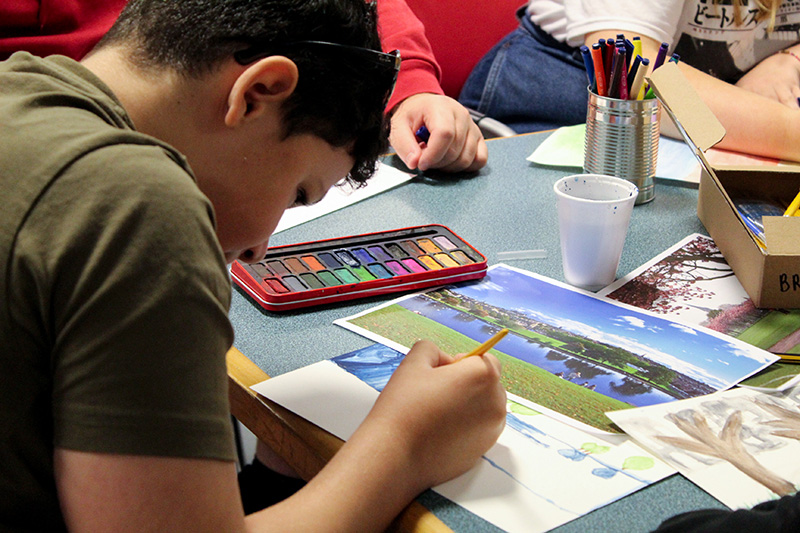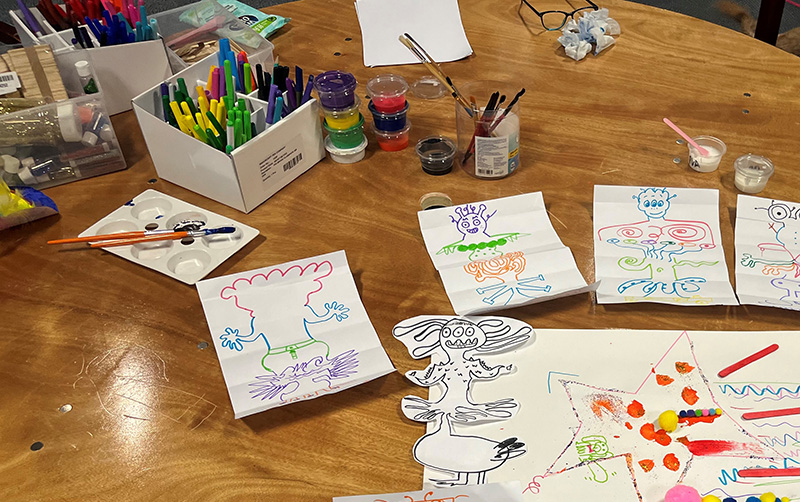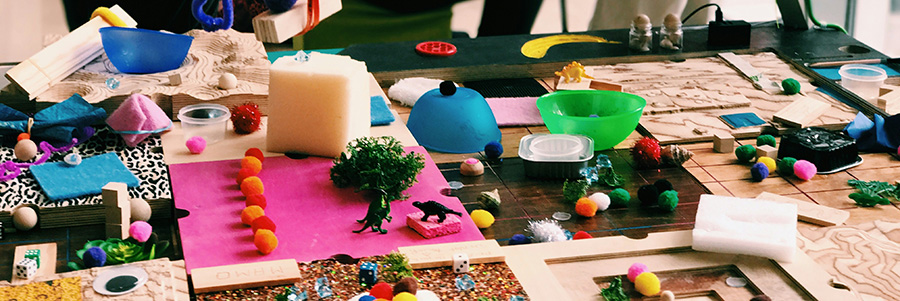Art therapy students from Queen Margaret University Jo and Alexa completed a placement with People Know How in 2023, creating art therapy groups supporting young people in Edinburgh schools.
Research conducted by the University of Kent has highlighted the importance of social bonds and connections when looking to improve one’s health. During the transition to secondary school, young people can face an increased mental load as they navigate a new school, make new friends and face new responsibilities. Our Positive Transitions service supports young people across Edinburgh and the Lothians during the school transition period to feel comfortable and express their concerns and questions in a positive environment.
Every year we support a cohort of placement students from universities across Scotland, giving them the space to put their learning and research into practice for the benefit of young people. Working with our placement students gives us a deeper insight into the academic fields that support our work, allowing us to align research, theory and practice and amplify the voices of young people.
Over the past 8 years, Positive Transitions has supported over 3,000 young people, and thanks to the collaborations with teachers, school staff, students, families, universities and other organisations, we continue to provide support that empowers young people.
The power of painting
During their placement, Jo and Alexa supported young people between the ages of 10 to 12. This age can be challenging for young people who may require additional support, as they can often be too young for services aimed at teenagers but mentally developed beyond the services aimed at younger children.
Jo’s university research highlighted that young people may face stigma from peers in a traditional isolated therapy environment. She wanted to ensure her art therapy groups helped young people break those stigmas and be comfortable with expressing themselves and their concerns around others.

To do this, she created an emoji mood board so everyone in the group had a chance to share how they felt in each session. This was further supported by setting themes for each task and letting the young people share and ask each other questions about their art while they were making it.
Art as communication beyond words
Alexa supported young person Fraser, who struggles with anxiety, making his transition to secondary school exhausting. Alexa used clay as a method to support him, as it has been cited to help exert pressure and remove stress and tension. Creating a calm and relaxed environment was crucial in helping Fraser to open up and share his feelings due to a previous bullying experience which impacted his school life.
Alexa and Fraser created Glob, a monster made of clay. As their sessions progressed, Fraser would use Glob as a way to express how he was feeling and what he struggled with. By the end of their sessions, he was able to reflect on art therapy and the positive impact it had on him as a way to release previous anxieties and express himself.
Improving transitions in Scotland
Stories like these remind us how important it is to provide young people with opportunities to express themselves in a way that feels comfortable. Positive transitions are important for today’s young people who face new and more complex challenges and questions as society moves forward. Empowering young people through the arts gives them the creative freedom to explore themselves without the pressure of a traditional therapy environment and lets them discover a creative side they may not know they had.
Published at the end of last year, our Positive Transitions report highlights our impact on the schools and young people we support, alongside the next steps in improving positive transitions across Scotland.


